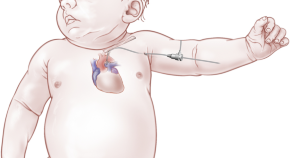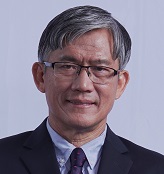
Collection
PDA Stenting: Past, Present and Future
- Submission status
- Open
- Open for submission from
- 05 July 2023
- Submission deadline
- Ongoing
The modified Blalock Taussig shunt (mBTS) has been the mainstay of palliation of lesions with ductal dependent pulmonary blood flow (DD-PBF). However, even in the current era this has been associated with post-operative instability and 30-day mortality in excess of other more technically complex neonatal operations. This has been partly attributed to a case-mix that include more complex lesions or severely ill neonates, leading to a drive toward alternative approaches in the palliation of these neonates.
In the last decade, ductal stenting (DS) has gained wider acceptance as alternative to mBTS. In recent publications, multicenter collaborative efforts that compared the outcomes of BTS with DS – though retrospective in nature – have validated some of the merits of DS observed in preceding single-center case series.
With our shared accumulated experience, we are seeing some degree of standardization of the PDA stenting procedure e.g. the role of pre-procedure advanced imaging, choice of vascular access, techniques and materials, post procedure management and inter-stage follow-up. It is still too early, however, to say that we are at the cusp of a new era where DS will soon supplant mBT as the palliation procedure of choice. There are procedural complications that are unique to DS, and durability of palliation is a concern although earlier definitive surgical repair has become the norm for the majority of complex cyanotic CHD. Publications on surgical experience at repairing lesions that had been palliated with DS is still a trickle. And fundamentally, DS remains a procedure that relies of materials borrowed from the coronary interventional world. There are certain aspects of complex PDA morphology in neonates with DD-PBF that may be better served by stents that are specifically designed for this purpose.
In this context, Pediatric Cardiology and PICS have embarked on opening a PICS Collection named “PDA stenting: past, present and future”. We are pleased to announce that Dr. Alwi and Dr. El Said are the invited guest editors for this special PICS Collection. We invite experts and researchers in the field to submit original research and review papers on the topic of PDA stenting, specifically focusing on areas such as advanced imaging, procedural techniques, post-procedure care and follow-up, and surgery post DS, long term results, new stent development and work related to this subject. We particularly encourage original research papers that present new scientific findings and outcomes, as well as review papers that provide a comprehensive overview of the current state-of-art and future directions on this topic. For review papers, we encourage authors to critically evaluate and synthesize existing research, identify key gaps in knowledge or limitations in current practices, and propose innovative ideas or new directions for future research on this topic.
All submitted papers should follow the author guidelines provided on the Pediatric Cardiology journal website. During the submission, you will be asked if you are submitting your manuscript to a PICS Collection.Editors
-
Howaida El-Said, MD
Dr. El-Said is the director of the cardiac catheterization laboratory at Rady Children’s Hospital and Professor of Pediatric Cardiology at the University of California San Diego (UCSD). Dr. El-Said is an Adult Congenital Heart Disease certified cardiologist and performs cardiac catheterizations on ages from infancy to adulthood with CHD. She had completed her residency, fellowship and interventional cardiology training at Baylor College of Medicine. Her advanced training included intervention and imaging in CHD. Her area of interest is PDA stenting, its techniques and its effects on the long-term outcomes of infants with CHD.
-
Mazeni Alwi, MD
Dr. Alwi is a Senior Consultant Paediatric Cardiologist at the Institut Jantung Negara (National Heart Institute), Kuala Lumpur. Dr. Alwi graduated in medicine from the University of Queensland, Australia, worked as a junior doctor in the departments of cardiology and paediatrics in Kuala Lumpur and did his fellowship in paediatric cardiology in Liverpool, UK. Dr. Alwi has developed the national paediatric cardiac service based in Kuala Lampur, training newer generations of cardiologists and fellows. His main interest is in neonatal interventions, in particular PDA stenting and management of pulmonary atresia intact ventricular septum.
Articles (3 in this collection)
-

-
Early and Long-Term Clinical Outcomes of Ductal Stenting Versus Surgical Aortopulmonary Shunt Among Young Infants with Duct-Dependent Pulmonary Circulation
Authors (first, second and last of 12)
- Gurbhej Singh
- Arun Gopalakrishnan
- Jaganmohan Tharakan
- Content type: Research
- Published: 15 February 2024
- Pages: 787 - 794

-
Stage 1 and 2 Palliation: Comparing Ductal Stenting and Aorto-Pulmonary Shunts in Single Ventricles with Duct-Dependent Pulmonary Blood Flow
Authors (first, second and last of 9)
- Srujan Ganta
- Jessica Haley
- John J. Nigro
- Content type: Research
- Open Access
- Published: 24 January 2024
- Pages: 471 - 482




